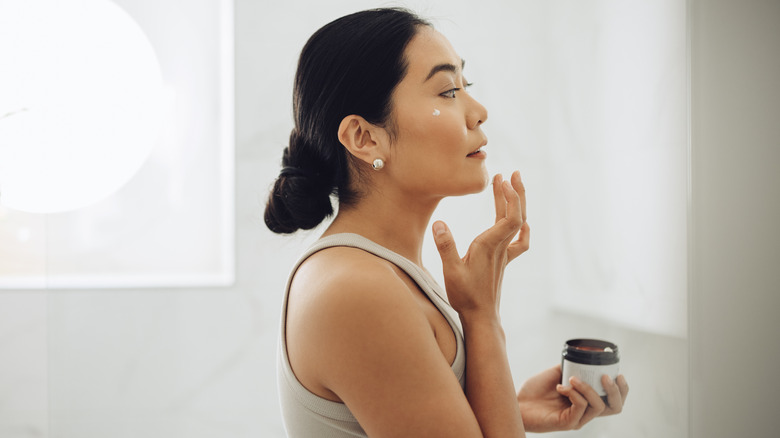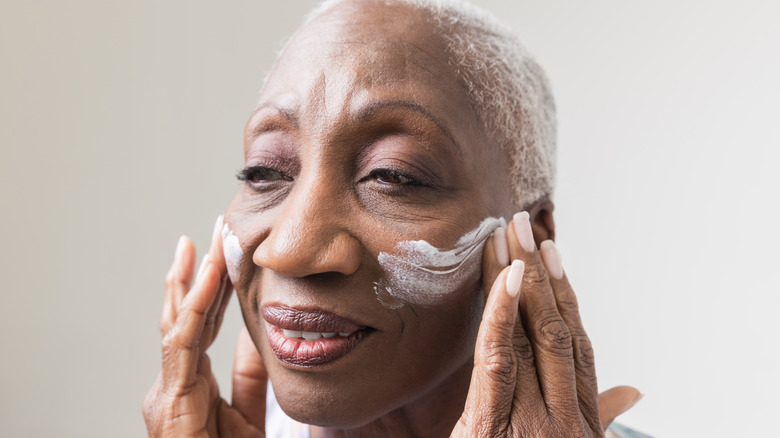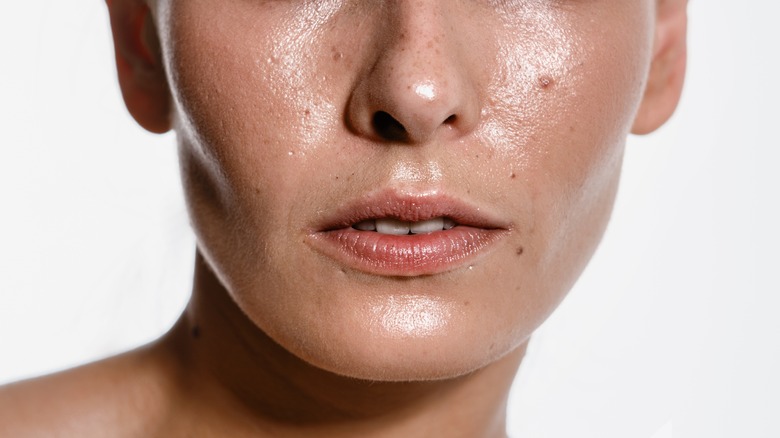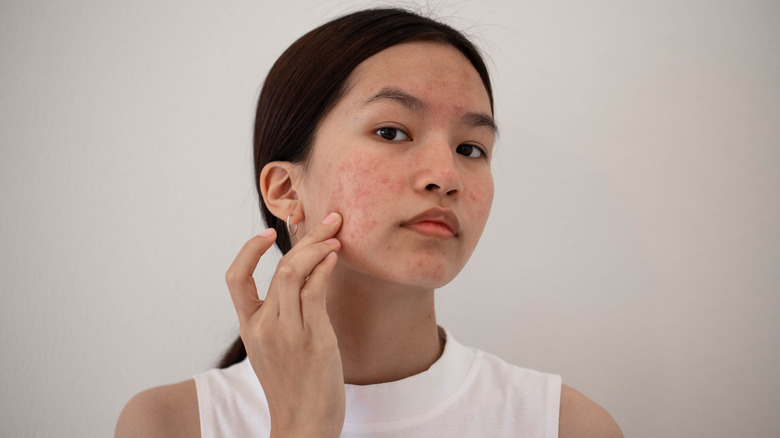Here's How To Find The Right Makeup Primer For Your Skin Type
To use makeup primer, or to not use makeup primer. That is the question many people ask while doing their makeup routines. Primers can have a lot of benefits for creating a smooth base for makeup application, and a good primer can help make your makeup last all day. Not everyone is a primer fan though. Some people report primers feeling greasy on their skin or making their skin break out. But did you know that similar to our skin care, certain primers are suited better for certain skin types?
Some primers can be more mattifying or hydrating, and several options align with your skincare goals. Primers can also be a great tool for mastering every trending skin type out there these days. If primers haven't been working out for you in the past, you may need to reevaluate what kind of primer you've been using. It can be overwhelming trying to decipher what product would be right for you, but by looking for specific keywords and shopping for your skin type, you can simplify the search.
What to look for in a primer for dry skin
If your skin is dry, make sure to prioritize looking for a primer that offers hydration. Look for keywords on packaging like dewy, luminous, hydrating, and glowing. These are words that signal the primer offers a moisturizing effect to keep your skin looking fresh after applying makeup. To avoid your hydrating primer feeling sticky on your skin, make sure to let your skincare be completely absorbed before you add primer. Then, let your primer absorb before putting any makeup on. Waiting can be annoying, but it will not only make your makeup look better, but it will also give the ingredients a chance to work for your skin. If you're a minimal makeup fan, a serum foundation can be a great all-in-one product to follow a primer, as they also offer skincare benefits through cosmetics.
If you're someone whose concealer and foundation can make your skin look flakey and patchy, a hydrating primer can help to protect your skin. Some primers even contain hydrating ingredients that you would find in your moisturizers like hyaluronic acid. An article for Dermato Endocrinology explained that hyaluronic acid is a good ingredient for dry skin because it has the capacity for water retention. This keeps your skin hydrated longer and in harsher conditions.
What to look for in a primer for oily skin
People with oily skin tend to be skeptical of mattifying primers. Some primers can feel greasy on the skin and clog pores, creating more excess oil. Finding a primer for oily skin can be tricky because, on the one hand, you need a product that helps you manage shine. But you also need a product that won't dry your pores out. Try to make sure you use an oil-free primer, as adding extra oil to already oily skin will only worsen the appearance. When looking at primers, look for keywords like mattifying or satin finish. It's also important to be mindful of ingredients.
Common ingredients in mattifying primers include polymers and silica. The American Chemical Association explained that polymers are a favored ingredient in cosmetics because of their barrier protection properties. Polymers help to fill and smooth skin while protecting your natural oil production from happening below the surface. In addition to this, try adding in a barrier repair product if you feel your skin needs one. Silica is a great ingredient to look for if you have oily skin. The Derm Review highlighted the natural absorptive power of silica, meaning it can absorb excess oil before it impacts your makeup.
What to look for in a primer for acne prone skin
If you have acne-prone skin, the idea of putting more products on your face can seem like a bad idea. But you can still benefit from a primer, especially if you choose one that has the same properties and ingredients as your favorite acne-fighting skincare. Treating a primer like the final step of a skincare routine before days you want to wear makeup can help not only make your makeup adhere to your skin better, but protect sensitive skin underneath. Of course, if you have severe acne or open wounds on the face, it's better to avoid all excess products in general.
If you're looking for a primer though, searching for primers that have similar properties as ones for oily skin is a good start. Take it to the next level by looking for primers that label themselves as acne-fighting, and remember that it's important to try and find oil-free primers, as excess oil can irritate your acne even more. Primers can also include ingredients like salicylic acid, which is one of the most popular acne-fighting ingredients in products because of its gentle exfoliating properties. Skincare Science explained that salicylic acid works to remove built-up dead skin cells, making it ideal for creating a smooth base for makeup and helping acne.



